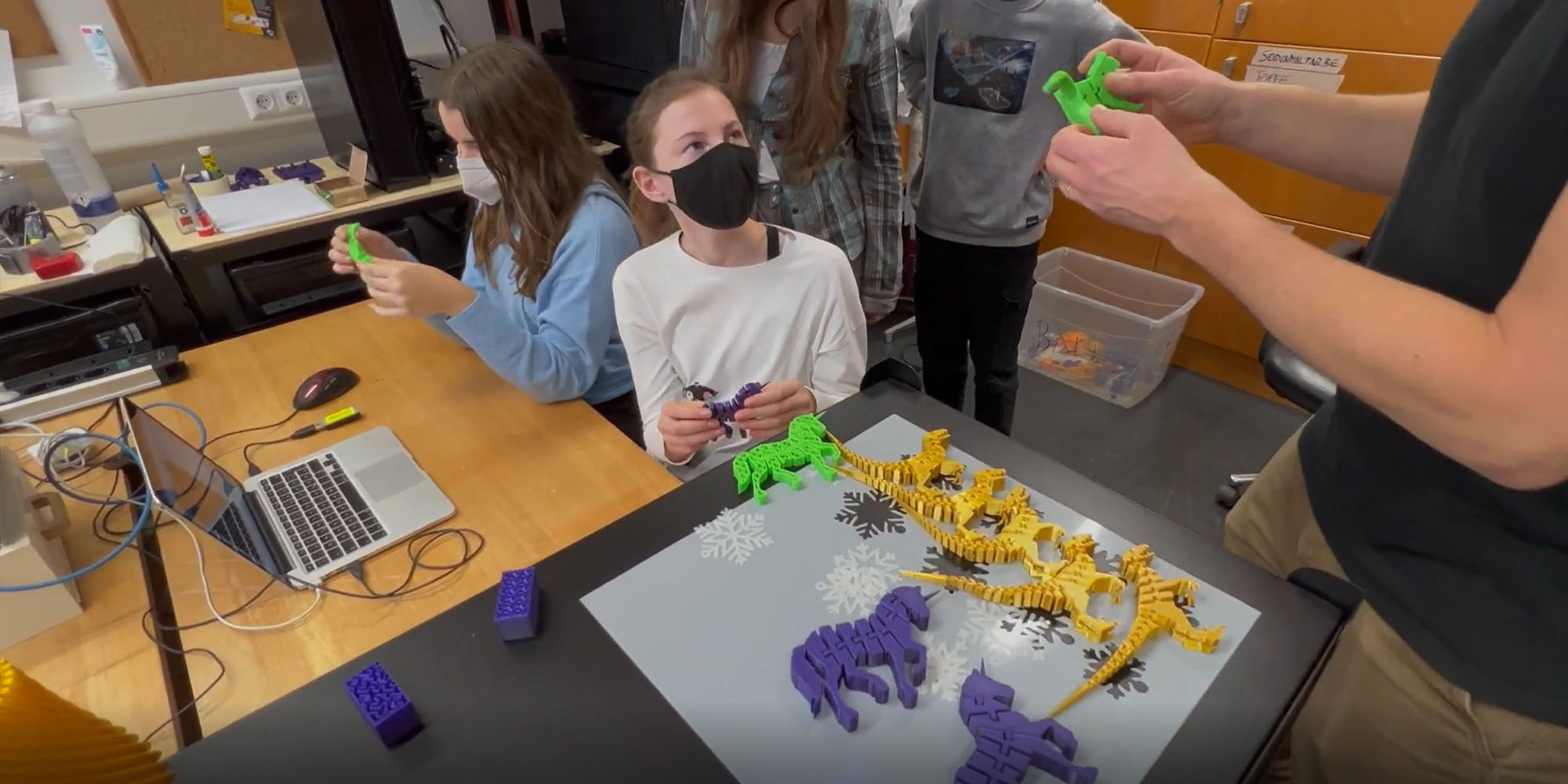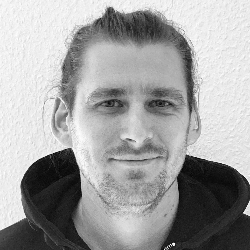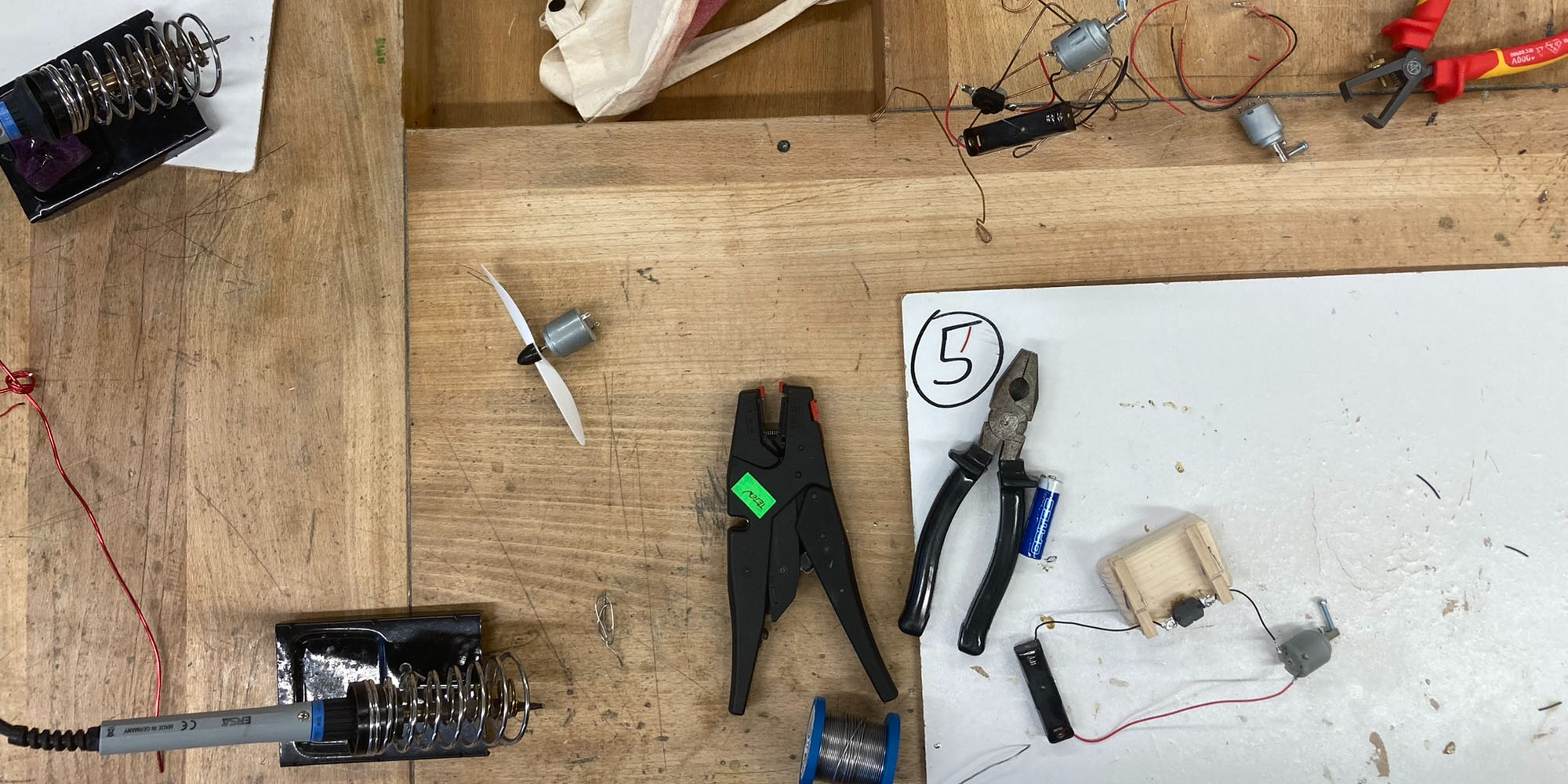The Austria-wide education award “Klasse! Lernen”, which is aimed at teachers and students, honors digital transformation in the classroom. The main criterion of the competition is the sustainable anchoring and multi-layered use of digital tools and new technologies.
There is a main prize of 10,000 Euros. In addition, two awards of 5,000 euros each will be presented. Furthermore, seven recognitions will be distributed. The awards will be presented at the annual Ars Electronica Festival.
We talked in more detail with Matthias Schoiswohl-Szwajor, who received an award and 5,000 euros for the “Schnittstelle Werken” project with his School Class in 2022. The project is intended to reveal connections and contexts to students and to enable the transformation of knowledge into know-how through practical work. Interdisciplinary and cross-curricular teaching should be the basis for this. The subject of handicrafts acts as a kind of interface where scientific, technical, artistic and humanities subjects meet. To this end, the incorporation of manufacturing technologies and the creation of analog and digital interfaces are crucial. Schoiswohl-Szwajor and his school class were an essential part of implementing this overall concept. In the 2021/22 school year, they applied techniques and technologies, tools, equipment and concepts to carry out the teaching project.
You and your school class received a recognition award of 5,000 euros for the “Schnittstelle Werken” project. How is the project going now and how has it developed?
Matthias Schoiswohl-Szwajor: Various projects are currently running in the “Schnittstelle Werken” field. The school is involved in projects for professionalization in the area of school development, collaboration and aspects of content. Currently we are involved in two Erasmus+ projects. GoSTEAM, which is about Steameducation and CaRE, which is about Communities of Practice.
To this end, various projects are being worked on at the school. In the school year 2022/23, an elective subject “3D Printing” and a non-binding exercise “Werkstatt Werken” will be offered for the first time in high school.
Another part of the school development concept “Schnittstelle Werken” is the OpenLab, which is intended to promote action-oriented transdisciplinary learning. In this context, handicraft is to be the practical interface to other subjects and enable interdisciplinary and intertechnological work at the interface between analog and digital. .
What are the plans for “Schnittstelle Werken”?
Matthias Schoiswohl-Szwajor: The goal was to build a hut for the schoolyard, which would make it possible to move certain teaching scenarios, such as biology lessons or handicraft lessons, outside. However, no opportunity was found where we could have carried out this project. The only possibility was outside of class time. The students and I, as well as invited colleagues, met weekly in the afternoon to complete the hut. It was not only here that their great desire to design, tinker, and build became apparent, and at the same time their disappointment that from the third/fourth grade of high school they no longer have room to develop in this field.
Out of this need we developed the OpenLab. Since November, the workshops have been open one afternoon a week and are supervised by specialist colleagues. No registration is necessary, you can stay as long as you like and there are no grades or exams. Since then, between 20 and 40 students have been coming every week to work on their own projects and on the interface between analog and digital processes.

How did you use the prize money you received?
Matthias Schwoiswohl-Szwajor: The materials and supervision costs will be covered in the 2022/23 school year thanks to the award from “Klasse! Lernen” and the sponsorship of Borealis and OMV.
For a continuation of the project in the school year 2023/24 and beyond we are still looking for financial support. But also, project partners who are interested in a cooperation in the topic “Making” in school, STEAM-Education or further and want to develop this pilot project together with us, are welcome.
What do you see as the importance of competitions like “Klasse! Lernen” and why did you decide to participate?
Matthias Schoiswohl-Szwajor: Participation in competitions, even if it is associated with success, encourages you in your own actions. Both students and teachers are confronted with very little positive feedback. Those that take place outside of one’s own microcosm of the school are all the nicer. Doing a little outside of school is nice for everyone!
Also, a major motivator to participate in competitions is money. That’s why it’s important to get projects off the ground. In public schools, that usually doesn’t exist. Without money, the entries for the 2022 competition from our school would not have existed, because our work equipment, for example, was financed through sponsorship. Without money, there will be no OpenLab next year and the students will have no place to work. Without money, this school development project cannot continue.
You can submit your work for “Klasse! Lernen” until March 20. A detailed overview of all ongoing Ars Electronica Open Calls can be found here and also on our social media channels.

Matthias Schoiswohl-Szwajor has been involved with action-oriented education on various levels for 15 years. He develops didactic concepts and workshops, builds hands-on prototypes and apparatuses for the cultural sector. He teaches technical and textile handicrafts in the SEK1 and is considered as a lecturer in advanced training for teachers. Schoiswohl-Szwajor is an advocate for the school subject of handicrafts as an interdisciplinary and intertechnological interface. In 2022, he and his class were awarded a prize in the “Klasse! Learning” competition.
